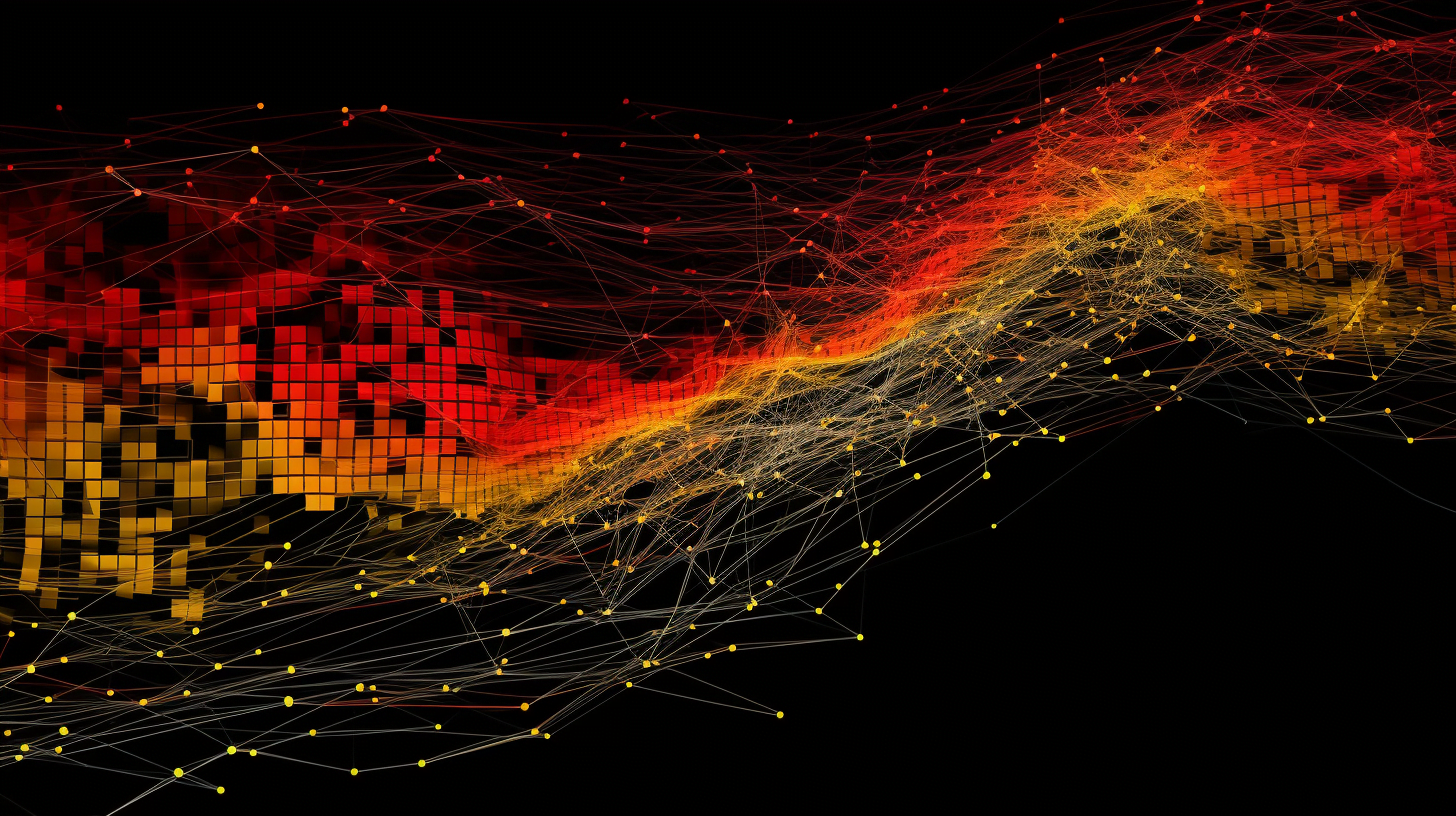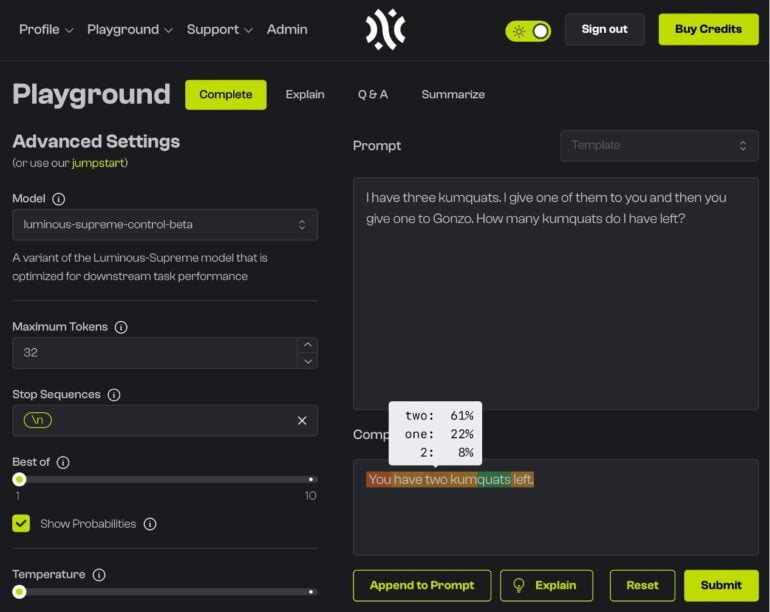AI startup Aleph Alpha shows off latest LLMs with a unique feature

Key Points
- German AI startup Aleph Alpha has released a new generation of language models, which they call "control models".
- These models are specialized for zero-shot prompting and achieve improved performance on simple tasks.
- A unique feature of Aleph Alpha's models is the "Explain" feature, which makes the results of the language models understandable to the user.
- The company is also working on its largest AI model to date, Luminous-World, which is expected to reach 300 billion parameters.
Aleph Alpha introduces new language models. In addition to improved performance, they offer a unique selling point that sets them apart from the competition.
German AI startup Aleph Alpha has released a new generation of language models. Called Control models by the company, the Base, Extended, and Supreme versions of the Luminous family have been fine-tuned to specialize in zero-shot prompts, similar to OpenAI's text-davinci-002 model.
Fine-tuning with instruction datasets and other examples improves the performance of the models, especially in use cases where users pass simple tasks to the models without many examples, as in the case of ChatGPT.
Unlike OpenAI, Aleph Alpha does not currently plan to use reinforcement learning with human feedback (RLHF), which is used for the GPT-3.5-turbo and GPT-4 models available there.
Aleph Alpha's control models bring more transparency
In February, the company launched a Control version of Luminous-Supreme, which is now being replaced by a new, improved version. In April, Aleph Alpha introduced the "Explain" feature for Luminous, which makes the results of language models more understandable to users.
The Explainable AI (XAI) approach is based on AtMan, an XAI method introduced in early 2023 by researchers from Aleph Alpha, TU Darmstadt, the Hessian.AI research center, and the German Research Center for Artificial Intelligence (DFKI).
All control models now include this feature: "All control models are able to trace correlations in information and factual correctness based on verified facts and show which text passages in a source caused or contradict the answer generated by the system," according to an Aleph Alpha release.

The Explain feature provides a unique opportunity for transparency and traceability of AI-generated content, the company said, which is an important step toward the expected regulatory requirement for explainability and traceability in the upcoming EU AI law. "Our explainability not only provides the necessary context for each factual statement made by the models, but also makes complex and critical AI support verifiable and traceable. This is necessary so that people in challenging fields such as law, healthcare and banking can continue to make responsible and understandable decisions," said CEO Jonas Andrulis.
Aleph Alpha continues work on its largest AI model to date
The release of the Control models could make language models more attractive to many European companies by lowering the barriers to productive use. "Our Control models are capable of delivering significantly better answers - in pilot customer evaluations they were neck-and-neck with the best models on the market," said Andrulis.
Meanwhile, work continues on the startup's largest AI model to date. Luminous-World is expected to reach 300 billion parameters and offer new capabilities for highly complex and critical applications. The model could serve as a competitor to GPT-4 and is currently in the training and evaluation phase, according to the company.
With the Control models, Luminous-World, and Europe's fastest commercial AI data center, Aleph Alpha appears well positioned to further establish itself in the rapidly evolving AI market. Competition may soon come from within Germany: Berlin-based AI startup Nyonic aims to develop generative AI models for Europe.
AI News Without the Hype – Curated by Humans
As a THE DECODER subscriber, you get ad-free reading, our weekly AI newsletter, the exclusive "AI Radar" Frontier Report 6× per year, access to comments, and our complete archive.
Subscribe now